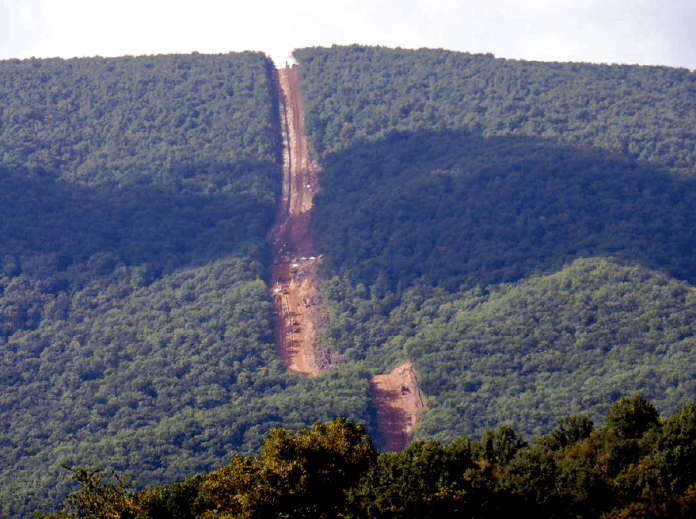On Monday 6/26/23, responses were filed in the U.S. 4th Circuit Court of Appeals regarding motions to dismiss a case involving the Mountain Valley Pipeline. Petitioners to the suit argue that provisions of the Fiscal Responsibility Act of 2023, which affect pipeline project completion, are unconstitutional. The debt-ceiling legislation was signed into law on June 3 by President Joe Biden.
The Mountain Valley Pipeline is a more than 300 mile, multi-billion dollar natural gas pipeline project running through West Virginia and Virginia. The pipeline has been a source of debate and litigation since its inception more than five years ago.
The U.S. Court of Appeals for the 4th Circuit vacated a West Virginia water permit in April 2023, which further halted the pipeline project. Petitioners claim that the MVP then turned to powerful allies in Congress to attach a Mountain Valley Pipeline-specific provision to the must pass debt-ceiling legislation. Language in provisions of the Fiscal Responsibility Act of 2023 inhibit judicial review of permits needed to construct the MVP. Also, the legislation requires cases related to the MVP be heard by the U.S. Court of Appeals for the D.C. Circuit, rather than the 4th Circuit. As a result, cases pending in the 4th Circuit are to be dismissed.
Petitioners argue that the provisions of the Fiscal Responsibility Act of 2023 on which respondents rely are unconstitutional exercises of judicial power by Congress. Also, Petitioners argue that The Court should reject Congress’s attempt to interfere unconstitutionally with the court system and not grant the Respondent’s motion to dismiss.
Petitioners to the suit include various environmental groups such as Appalachian Voices, West Virginia Rivers Coalition, West Virginia Highlands Conservancy, Sierra Club, and the Center for Biological Diversity, among others. Respondents include the U.S. Department of the Interior, U.S. Fish and Wildlife Service, Mountain Valley Pipeline, and several individuals in their official capacity.







